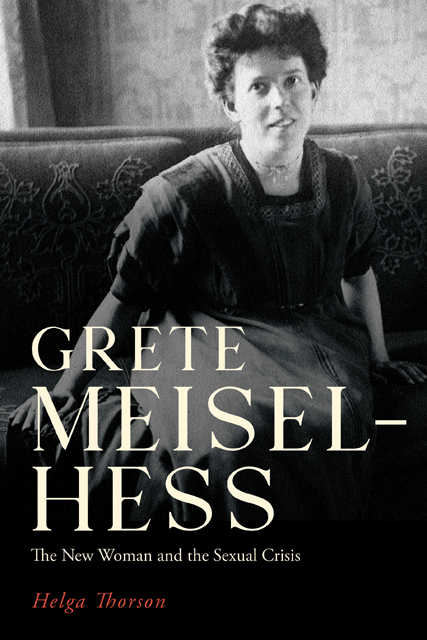Book contents
- Frontmatter
- Dedication
- Contents
- List of Illustrations
- Acknowledgments
- List of Abbreviations
- Introduction: Breaking with the Past, Forging the Future
- 1 The New Woman of the Early Twentieth Century
- 2 Feminism and Jewishness in Viennese Literary Modernism
- 3 Theorizing the Sexual Crisis through Journalism and Sexology
- 4 Effecting Change through Literature: Die Intellektuellen (1911)
- 5 Sexual Sociology during the First World War
- Conclusion: Living the Sexual Crisis
- Bibliography
- Index
Conclusion: Living the Sexual Crisis
Published online by Cambridge University Press: 11 January 2023
- Frontmatter
- Dedication
- Contents
- List of Illustrations
- Acknowledgments
- List of Abbreviations
- Introduction: Breaking with the Past, Forging the Future
- 1 The New Woman of the Early Twentieth Century
- 2 Feminism and Jewishness in Viennese Literary Modernism
- 3 Theorizing the Sexual Crisis through Journalism and Sexology
- 4 Effecting Change through Literature: Die Intellektuellen (1911)
- 5 Sexual Sociology during the First World War
- Conclusion: Living the Sexual Crisis
- Bibliography
- Index
Summary
A year after the publication of Das Wesen der Geschlechtlichkeit, Meisel-Hess published the final book of her sexological trilogy, Die Bedeutung der Monogamie (The Meaning of Monogamy, 1917). Although the ideas expressed in this supplement are very similar to those found in her previous book, the tone of the book is calmer, written with much less agitation and intensity. Additionally, Meisel-Hess continued to work on various literary projects during this time: a novella titled “Kriegstrauung” (Wartime Wedding), which she mentions in Die Bedeutung der Monogamie (BM 51), and a novel with the title “Der magische Strom: Ein bürgerlicher Familienroman aus Österreich-Ungarn” (The Magic Current: A Bourgeois Family Novel from Austria-Hungary). Neither of these literary works was ever published. Therefore we can only speculate on their contents. Drawing on the motif of regeneration as expressed in Das Wesen der Geschlechtlichkeit, the 336-page typed manuscript of “Der magische Strom” could very well tell the recurring story that takes shape in her 1916 sexological study, but this time in the form of a fictional novel. If the novel indeed takes up the metaphor that she constructed in her sexological study, the magical current represents both an individual and a societal cleansing, instigated by the altruistic act of forgiveness on the part of the female protagonist. Meisel-Hess submitted the manuscript to various publishers, including the J. G. Cotta’sche Buchverlag in September 1917, but did not, to the best of my knowledge, receive any positive responses leading to an eventual publication of the book. It is difficult to assess whether this had to do with the quality of her submission, the topic at hand, or the mere fact that paper was hard to come by during the late war years. In fact, in other correspondence she had with publishers of various kinds, the paper shortage as well as the shortage of typesetters is cited as a significant issue at the time. On March 19, 1918, Meisel-Hess gave a public reading of a section of her book-in-progress titled “Scenes from Dalmatia” in the Schubertsaal in Berlin, which received a negative review in the press. Nonetheless, in a 1919 letter to Eugen Diederichs, Meisel-Hess seems quite confident that her novel would be published before long.
- Type
- Chapter
- Information
- Grete Meisel-HessThe New Woman and the Sexual Crisis, pp. 227 - 244Publisher: Boydell & BrewerPrint publication year: 2022



